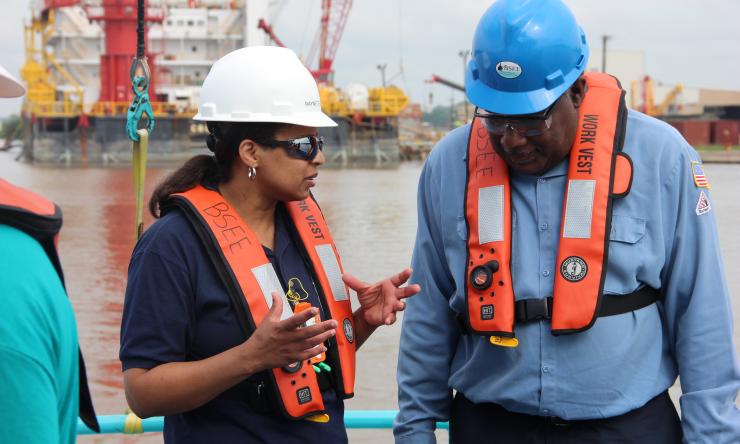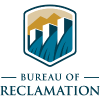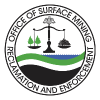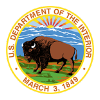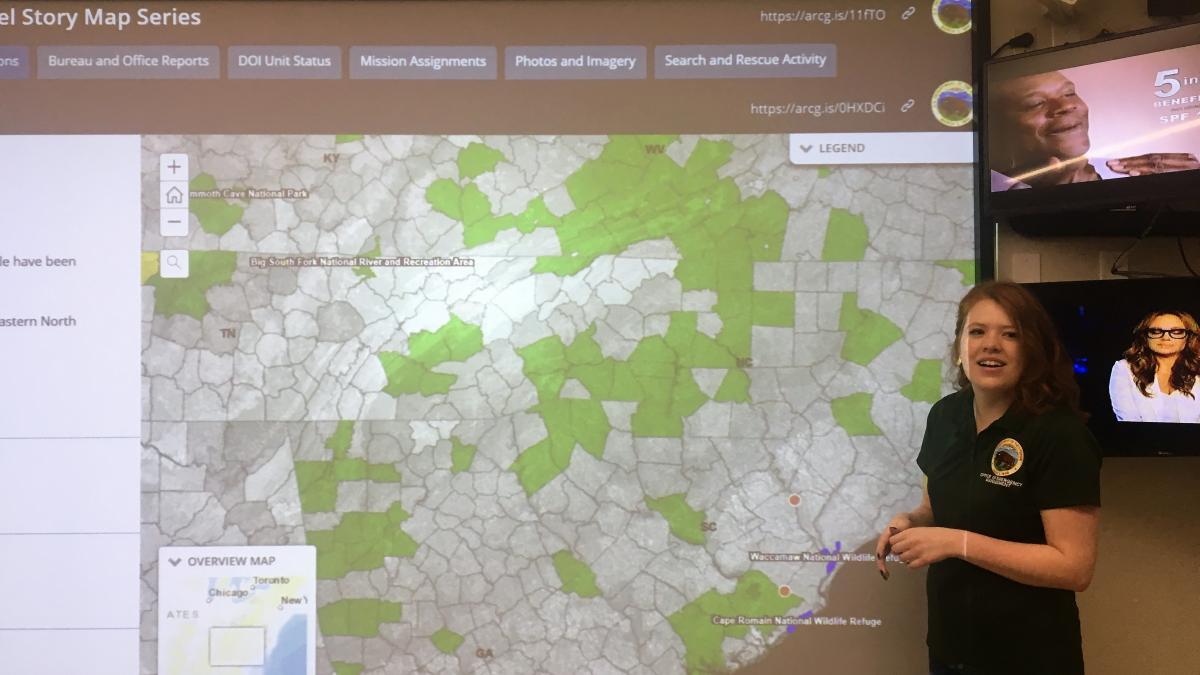
Emergency Management
Position Overview
Emergencies can happen anytime, anywhere, without warning. Like other federal agencies DOI must be vigilant and ready to do its part to respond to all types of emergencies: natural disasters, humanitarian emergencies, pandemics, man-made and technological incidents or hazards. Emergency Management experts help DOI develop and refine plans and procedures that help the agency remain prepared to respond and recover from the unexpected. Planning, conducting, and evaluating exercises are required to identify gaps in policies, plans, and proficiency.
This position is represented at the following bureaus
Candidate Description
The ideal candidate is a strong to excellent writer and can communicate well across various platforms. (S)he is organized, plans ahead, and can quickly “connect the dots” in fast-moving external events. He or she can remain calm and be decisive under pressure. This person effectively collaborates and coordinates with people at all levels of government, non-governmental organizations, and in the private sector.
Work Environment
Work is performed in an office environment, but emergency response may involve special demands such as wearing protective gear, demanding and unpredictable work schedules, and assisting others. May deploy to serve on emergency management teams or as a member of a Continuity of Operations (COOP) Team.
Minimum Education Requirements
Please see the Administrative and Management Support Group Qualification Standard on the OPM website.
Career Level Requirements
Responsibilities by Level
Mid:
- Tracking and reporting on critical incidents
- Serving on teams and work groups reviewing or modifying incident management or continuity of operations plans
- Drafting or updating guidance documents and procedures
- Reviewing and drafting comments on proposed legislation or other emergency management documents
- Preparing alerts and notifications for a variety of events and situations
Journey:
- Planning and overseeing comprehensive emergency management studies
- Developing emergency management policies, procedures and guidance
- Advising on occupant emergency planning and preparedness
- Preparing legislative recommendations
- Analyzing emergency response capabilities, procedures and systems and developing recommendations for improvement
Senior:
- Leading Incident Coordination Teams, managing all aspects of response to specific emergency situations
- Planning, developing, and implementing comprehensive emergency management policy
- Developing and overseeing emergency management programs at regional/bureau levels
- Monitoring and responding to legislative, political, social and economic trends to inform emergency management planning and program management
- Delivering briefings and testimony and coordinating effectively with national level groups, Congress, high level state officials
Strengths by Level
-
AccountabilityHolds self and others accountable for measurable high-quality, timely, and cost-effective results. Determines objectives, sets priorities, and delegates work. Accepts responsibility for mistakes. Complies with established control systems and rules.Show Tool TipMid 9-11Journey 12-13Senior 14-15
-
Attention to DetailIs thorough when performing work and conscientious about attending to detail.Show Tool TipMid 9-11Journey 12-13Senior 14-15
-
ComplianceKnowledge of procedures for assessing, evaluating, and monitoring programs or projects for compliance with Federal laws, regulations, and guidance.Show Tool TipMid 9-11Journey 12-13Senior 14-15
-
Customer ServiceWorks with clients and customers (that is, any individuals who use or receive the services or products that your work unit produces, including the general public, individuals who work in the agency, other agencies, or organizations outside the Government) to assess their needs, provide information or assistance, resolve their problems, or satisfy their expectations; knows about available products and services; is committed to providing quality products and services.Show Tool TipMid 9-11Journey 12-13Senior 14-15
-
Decision MakingMakes sound, well-informed, and objective decisions; perceives the impact and implications of decisions; commits to action, even in uncertain situations, to accomplish organizational goals; causes change.Show Tool TipMid 9-11Journey 12-13Senior 14-15
-
External AwarenessIdentifies and understands economic, political, and social trends that affect the organization.Show Tool TipMid 9-11Journey 12-13Senior 14-15
-
FlexibilityIs open to change and new information; adapts behavior or work methods in response to new information, changing conditions, or unexpected obstacles; effectively deals with ambiguity.Show Tool TipMid 9-11Journey 12-13Senior 14-15
-
Influencing/NegotiatingPersuades others to accept recommendations, cooperate, or change their behavior; works with others towards an agreement; negotiates to find mutually acceptable solutions.Show Tool TipMid 9-11Journey 12-13Senior 14-15
-
Information ManagementIdentifies a need for and knows where or how to gather information; organizes and maintains information or information management systems.Show Tool TipMid 9-11Journey 12-13Senior 14-15
-
Interpersonal SkillsTreats others with courtesy, sensitivity, and respect. Considers and responds appropriately to the needs and feelings of different people in different situations.Show Tool TipMid 9-11Journey 12-13Senior 14-15
-
Oral CommunicationExpresses information (for example, ideas or facts) to individuals or groups effectively, taking into account the audience and nature of the information (for example, technical, sensitive, controversial); makes clear and convincing oral presentations; listens to others, attends to nonverbal cues, and responds appropriately.Show Tool TipMid 9-11Journey 12-13Senior 14-15
-
Organizational AwarenessKnows the organization's mission and functions, and how its social, political, and technological systems work and operates effectively within them; this includes the programs, policies, procedures, rules, and regulations of the organization.Show Tool TipMid 9-11Journey 12-13Senior 14-15
-
PartneringDevelops networks and builds alliances; collaborates across boundaries to build strategic relationships and achieve common goals.Show Tool TipMid 9-11Journey 12-13Senior 14-15
-
Problem SolvingIdentifies problems; determines accuracy and relevance of information; uses sound judgment to generate and evaluate alternatives, and to make recommendations.Show Tool TipMid 9-11Journey 12-13Senior 14-15
-
ReasoningIdentifies rules, principles, or relationships that explain facts, data, or other information; analyzes information and makes correct inferences or draws accurate conclusions.Show Tool TipMid 9-11Journey 12-13Senior 14-15
-
ResilienceDeals effectively with pressure; remains optimistic and persistent, even under adversity. Recovers quickly from setbacks.Show Tool TipMid 9-11Journey 12-13Senior 14-15
-
Teaching OthersHelps others learn through formal or informal methods; identifies training needs; provides constructive feedback; coaches others on how to perform tasks; acts as a mentor.Show Tool TipMid 9-11Journey 12-13Senior 14-15
-
TeamworkEncourages and facilitates cooperation, pride, trust, and group identity; fosters commitment and team spirit; works with others to achieve goals.Show Tool TipMid 9-11Journey 12-13Senior 14-15
-
Technical CompetenceUses knowledge that is acquired through formal training or extensive on-the-job experience to perform one's job; works with, understands, and evaluates technical information related to the job; advises others on technical issues.Show Tool TipMid 9-11Journey 12-13Senior 14-15
-
WritingRecognizes or uses correct English grammar, punctuation, and spelling; communicates information (for example, facts, ideas, or messages) in a succinct and organized manner; produces written information, which may include technical material, that is appropriate for the intended audience.Show Tool TipMid 9-11Journey 12-13Senior 14-15
Common Pathways
Candidates who made this career change most commonly held these occupations...
Civil Engineering
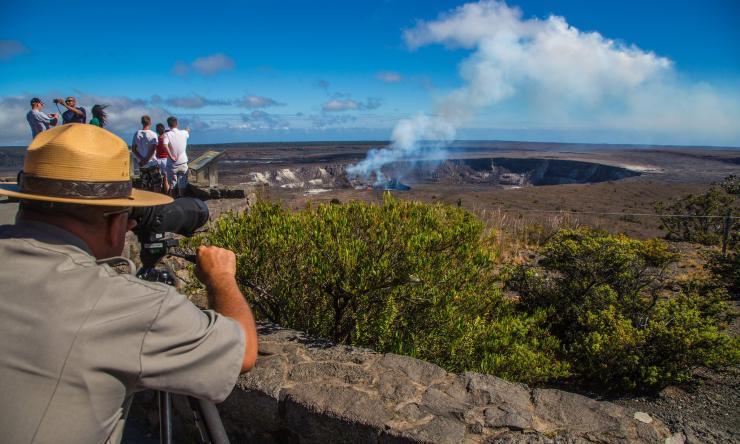
Miscellaneous Administration and Program
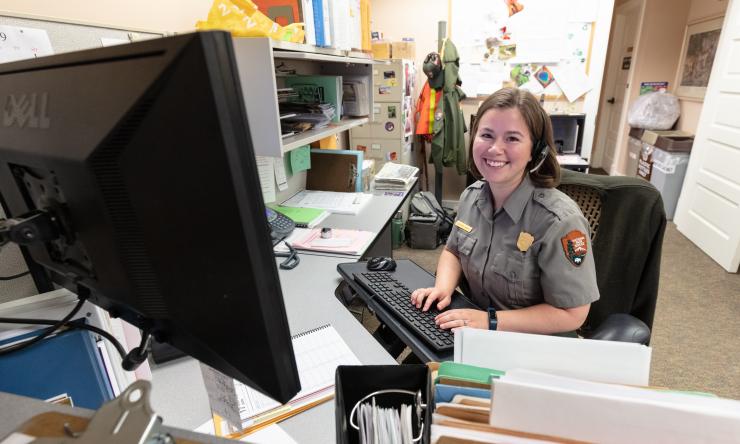
Safety and Occupational Health Management
